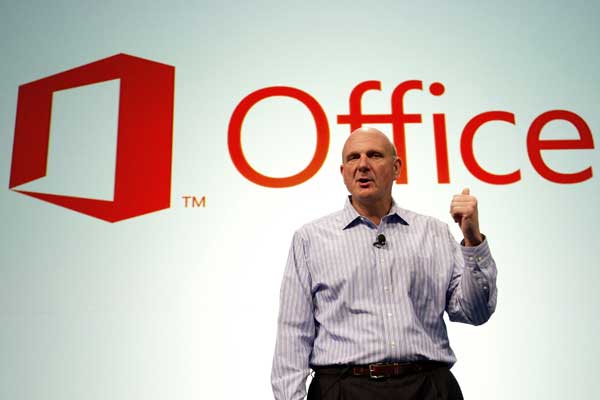Is Ballmer right? Is consumer and enterprise one industry, indivisible?


In 15 minutes with Mary Jo Foley, we learnt more about Microsoft and its devices and service strategy than a thousand hours of spin doctored PR ever taught us.
In her two-part piece -- "Ballmer's biggest regret" and "Why Microsoft doesn't want to be IBM", we first learn about Ballmer's personal journey at Microsoft, then about Ballmer's thoughts on Microsoft's possible journey after he leaves.
We know that Microsoft wants to be all things to all people -- to be a business based on delivering devices and services to both the enterprise and Consumerland, but there are some fascinating insights in both pieces.
Phones
Ballmer talks about how he's proud of being a "significant part even of the birth of intelligent personal computing, the notion that people use computing technologies, whether that's phones, PCs". And so he should. Much as I'm often harsh on Microsoft in the pieces I write, it's only because I want them to do better.
What he says next though is fascinating. He immediately goes on to say (with my emphasis) "the notion that people use computing technologies, whether that's phones, PCs".
Given Microsoft's position in our industry, and given that Microsoft essentially invented the PC as we know it, Ballmer is listing "phones" ahead of PCs.
That… is… huge.
In combination with this quote — "I would say a billion plus people and now more with phones, even if they're not all our phones, I'm very proud of what we've accomplished there" — that tells you everything that you need to know about the death of the PC.
That sucker (the PC) is over. Even Ballmer is agreeing with me here.
Enterprise
The other hugely thought-provoking part of the interview comes from Foley asking about enterprise. She asked: "I'm curious why you guys are so taken with being a player in consumer. Why not 'just' be IBM? You're already so successful in enterprise, why not just focus there?"
This is something I've been going over round and round over for the past 24 months, and spinning like a neutron star with frustration over the past 12 months as I've seen nothing but naff products issue forth. If Microsoft want Consumerland so badly, why are they making such a hash of it? (Exhibit A: a billion dollar Surface write-down.)
I'm going to present Ballmer's comments out of order on this. He closes this section of the interview by saying "We grew up with a horizontal experience called Windows and Office that's equally applicable to people in their personal lives and their professional lives".
That describes a span -- that someone working in an enterprise and experiencing Windows and Office will want to take that experience to their entire digital life.
What Ballmer is saying here is that, in his worldview, there is no delineation between the consumer and enterprise worlds -- or that if there is, the membrane between them is permeable and there is value in allowing people, users, and experiences to pass between one and the other.
Equality
But is he right?
All of this comes down to his last point that Windows and Office are "equally applicable to people in their personal lives and their professional lives." Again, my emphasis.
How do you feel about that statement?
He said "equally applicable" -- i.e. a user's experience of Windows and Office in the enterprise translates in equal force and magnitude to their digital life outside of work.
Does that sound right to you? Does someone taking a break at their job as a barista jumping on Facebook whilst sneaking out the back for a cigarette to catch up on the days news feel like they could do that equally well on a laptop with Windows and IE?
To me, these post-PC usage scenarios -- ones which are described as being always available, always connected, relationship-centric, and rooted in digital social networking services -- are the bread and butter of post-PC. They are what people buy post-PC devices for.
I think Ballmer's wrong. Moreover, he's been leading Microsoft in the wrong direction because of this position. Frankly, it explains a lot.
Whoever comes into take over needs a more nuanced position. I do think Ballmer's right that in order to be successful for their shareholders, Microsoft needs to span consumer and enterprise. (Consider how Apple doesn't do this. I think Ballmer is right in that they should.)
But that new CEO needs to develop new products that span the worlds with more grace and elan than just Ballmer's two-dimensional view of slapping Windows and Office on everything.
PC for work, post-PC for life. And there's no reason why Microsoft can't do rather well out of both with the right leadership.
What do you think? Post a comment, or talk to me on Twitter: @mbrit.